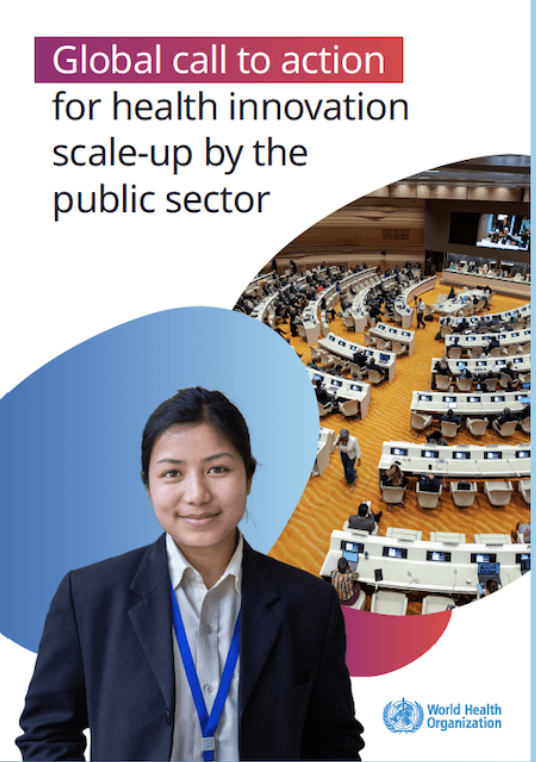Mountain Model as a foundation of the WHO Call to Action
6 March 2023
Innovation holds the key to transforming healthcare delivery and achieving the SDGs. Through collaborative efforts guided by the Mountain Model approach, governments and their partners can accelerate the scale-up of health innovations, leaving a lasting impact on global health outcomes. This vision is what inspired the recently published WHO Call to Action for Health Innovation Scale-Up by the Public Sector, where the Mountain model served as a foundation and basis. Its ultimate vision is to ensure that everyone, regardless of their circumstances, has access to quality healthcare.
Innovation is the cornerstone of progress, especially in the realm of public health. Yet, despite the wealth of innovative solutions available, the scale-up of these initiatives often falls short, leaving significant gaps in healthcare delivery worldwide. Recognizing this challenge, a global call to action has been initiated, urging governments and their partners to prioritize the scale-up of health innovations. Inspired by the Mountain Model approach, this call to action aims to propel us towards achieving the Sustainable Development Goals (SDGs) and Universal Health Coverage.
Despite significant advancements in healthcare, progress towards the SDGs remains sluggish. The gap between innovation and implementation persists, hindering our ability to achieve meaningful change. However, within this challenge lies a tremendous opportunity. By identifying and addressing the systemic barriers to scale-up, we can harness the power of innovation to transform healthcare delivery on a global scale.
Approach: To tackle the complexities of scaling health innovations, a multi-faceted approach is necessary. Drawing from frameworks such as WHO/ExpandNet and IDIA’s Mountain Model, governments and their partners can chart a course towards success. These frameworks provide a roadmap for systematically scaling innovations, from identifying needs to implementing solutions at scale.
Key Asks: This call to action outlines key asks for governments and ecosystem partners, empowering them to drive meaningful change:
Demand-Driven: Conduct inclusive consultations to identify gaps in the health system and prioritize innovation where it is needed most.
Assessment: Agree on criteria for selecting innovations that are tailored to local contexts and have the potential for significant impact.
Pilot: Test innovations under real-world conditions to gather insights and inform scaling strategies.
Resourcing: Secure political commitment and resources to support the scale-up of selected innovations.
Scaling Pathway: Analyze factors such as cost, time, and sustainability to determine the most effective scaling pathway.
Implementation Plans: Develop comprehensive innovation scale-up plans including delineation of the roles of various government entities and ecosystem partners.
Implement, Learn, Iterate: Design appropriate documentation processes for implementation, and monitor scaling progress so as to inform potential modifications in light of the changing system environment.
Institutionalize: Prepare to change government budget, policies, laws/regulations, management information systems and other health system components to sustain the innovation at scale and systematize the adoption of innovation within the health system.
Ecosystem partners are also called upon to provide support in areas such as resource provision, decision-making assistance, and capacity development.

